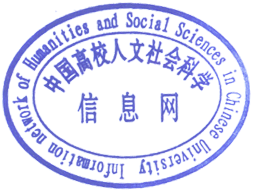关 键 词 :象征主义;死亡;恶;抗争;索洛古勃学科分类:文学--俄国文学
索洛古勃是俄国象征主义文学的重要代表之一,被鲁迅誉为“死的赞美者”。在白银时代俄国文坛美学思潮中,索洛古勃以独具一格的悲观主义个人主义著称。尽管他的诗歌常被贴上颓废、虚无和宿命的标签,但其作品中同样蕴含着抗争与超越的深刻内涵。《火红的罂粟》一诗尤为突出地展现了索洛古勃对尘世的抗争和对希望的执着追求,即使希望如同毒药般的火罂粟。索洛古勃不仅仅是一个悲观主义者,更是一位在绝望中寻找光明,在颓废中追求超越的诗人。本文旨在通过分析《火红的罂粟》的韵律结构、象征意象、色彩意蕴等方面,挖掘其艺术魅力和文学价值,从而更全面地理解索洛古勃的诗歌创作及其在象征主义文学中的地位。
Fyodor Sologub is one of the most prominent representatives of Russian Symbolist literature, praised by Lu Xun as "the glorifier of death." Within the aesthetic currents of Russia’s Silver Age, Sologub distinguished himself through his unique brand of pessimistic individualism. Though his poetry is often labeled as decadent, nihilistic, and fatalistic, it simultaneously carries profound connotations of resistance and transcendence. His poem The Scarlet Poppy particularly exemplifies Sologub’s defiance against the mortal world and his relentless pursuit of hope—even if that hope is as poisonous as the flaming poppy. Sologub is not merely a pessimist but a poet who seeks light in despair and strives for transcendence amid decay. This paper aims to analyze The Scarlet Poppy in terms of its rhythmic structure, symbolic imagery, and chromatic symbolism, thereby uncovering its artistic allure and literary value. Through this analysis, the study seeks to provide a more comprehensive understanding of Sologub’s poetic craft and his place within Symbolist literature.

